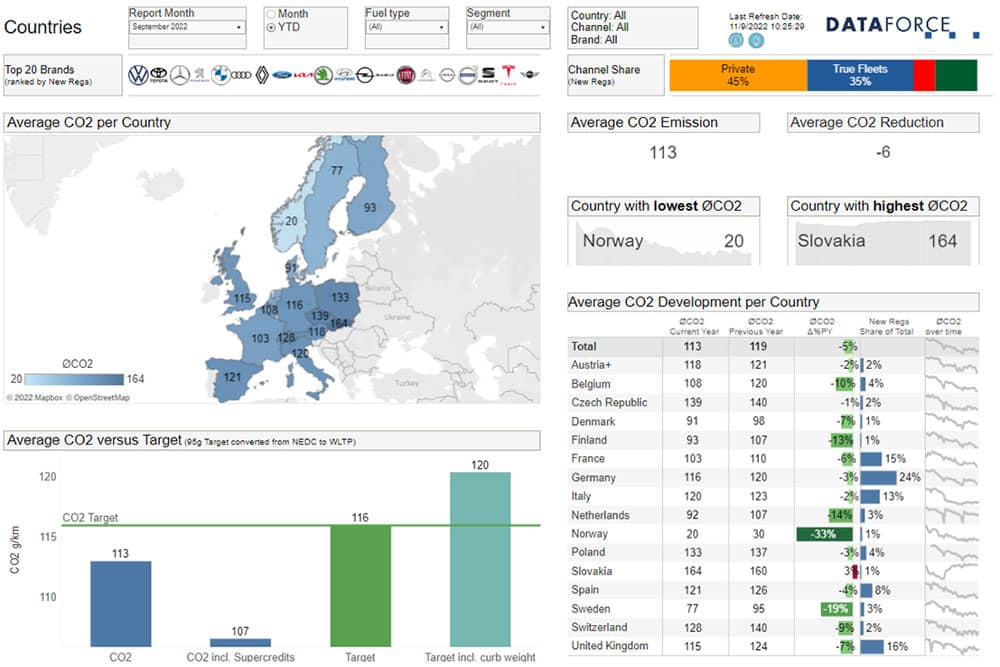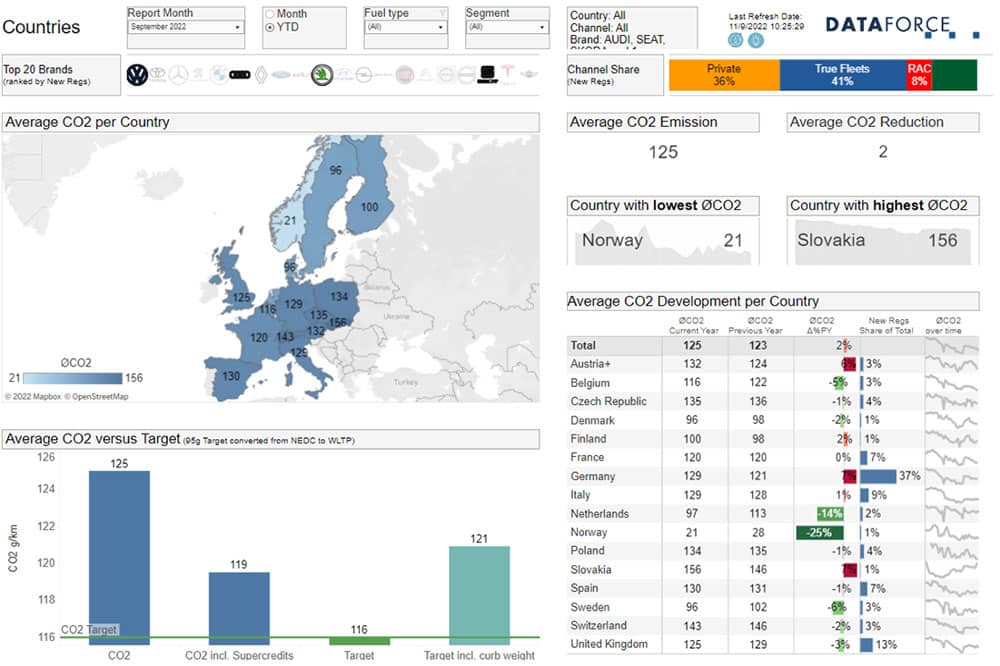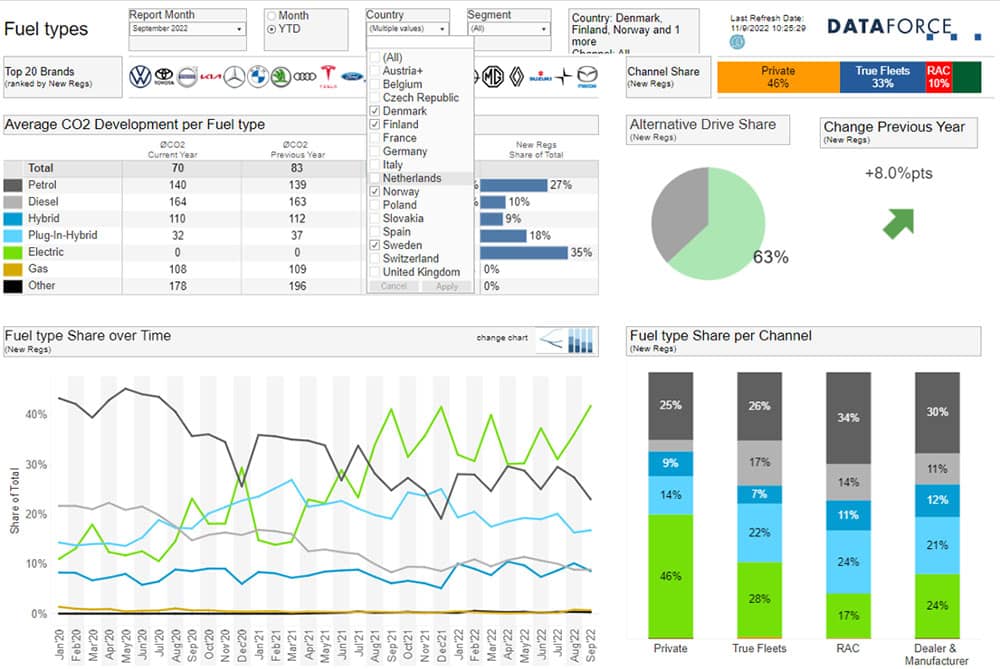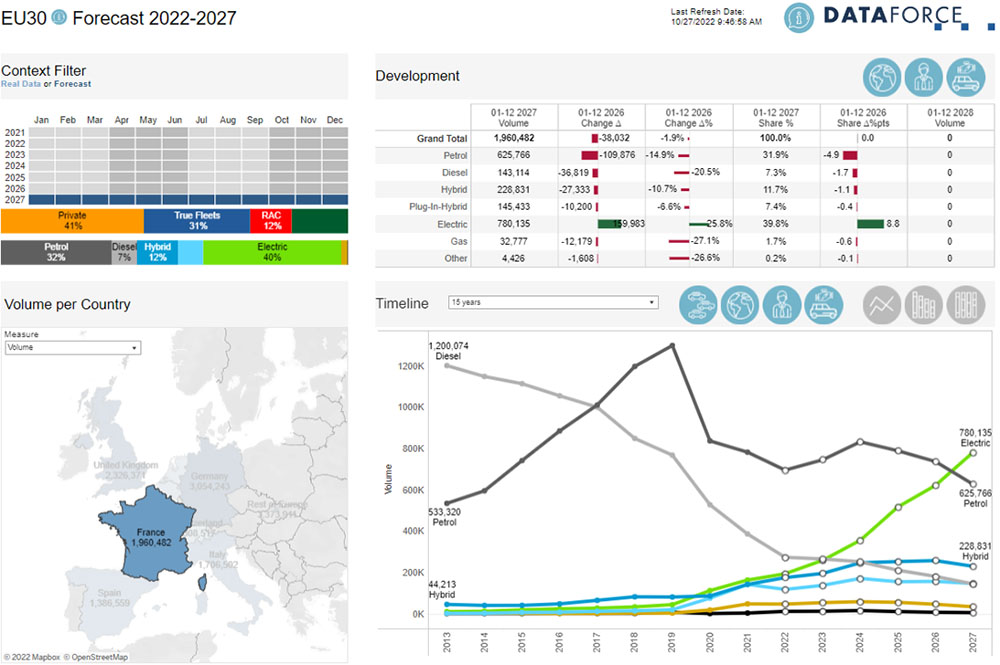The EU, but also Switzerland and the United Kingdom, require car manufacturers to meet strict CO2 targets. Under the keyword Road-2-Zero, Dataforce analyses and forecasts the CO2 reduction and electrification of the car market. Some highlights from the latest analysis can be found in this article.
WLTP CO2 emissions of new passenger cars fall to 113 g/km
In terms of CO2 emissions, the automotive industry as a whole is doing well – despite ambitious EU targets. Across all countries, the average emissions of newly registered passenger cars as of January-September 2022 are only 113 g/km. That is 6 g/km less than in the same period in 2021. The EU target – converted to WLTP, the 95 g/km result in about 116 g/km – is thus undercut by 3 g/km. And this does not even take into account the Supercredits and the weight factor. The former allows BEVs and PHEVs to a higher weight in the average calculation, but it will only apply until the end of 2022.The weight factor considers that the vehicles are slightly heavier on average than the standard weight defined by the EU and thus increases the target values for manufacturers with heavier cars.
It will be tight for the VW Group





